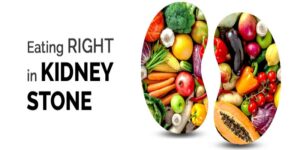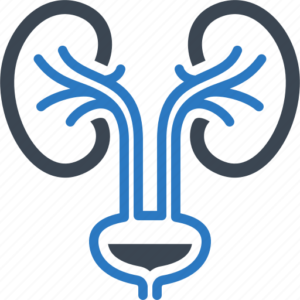A Diet and Nutrition Guide for Patients with Kidney Stones – Tips for Managing Your Condition

Introduction:
For individuals living with kidney stones, adopting the right diet and nutrition plan is crucial for managing symptoms, preventing recurrence, and promoting overall kidney health. In this blog, we’ll explore essential dietary considerations and practical tips tailored to kidney stone patients, helping you make informed choices to support your well-being.
Understanding Kidney Stones and Diet:
Diet plays a significant role in the formation of kidney stones. Certain foods and beverages can contribute to the development of stones by increasing the concentration of minerals in the urine. Common types of kidney stones include calcium oxalate, uric acid, and struvite stones, each influenced by different dietary factors.
Tips for Kidney Stone Patients:
1. Stay Hydrated:
Adequate hydration is key to preventing kidney stone formation. Aim to drink plenty of water throughout the day to maintain urine volume and dilute minerals that can contribute to stone formation. Your urine should be light yellow or clear as an indicator of proper hydration.
2. Limit Sodium Intake:
High sodium intake can lead to increased calcium excretion in the urine, contributing to the formation of calcium-containing kidney stones. Limit your consumption of processed foods, canned soups, and salty snacks, and opt for fresh, whole foods prepared with minimal added salt.
3. Moderate Protein Consumption:
Consuming excessive amounts of animal protein, such as red meat and poultry, can increase the risk of uric acid and calcium oxalate stones. Aim for moderate protein intake and consider incorporating plant-based protein sources like legumes, tofu, and nuts into your diet.
4. Watch Oxalate-Rich Foods:
Some kidney stones are composed of calcium oxalate, making it essential to moderate your intake of oxalate-rich foods such as spinach, rhubarb, beets, nuts, and chocolate. While these foods provide valuable nutrients, consuming them in excess may contribute to stone formation.
5. Monitor Calcium Intake:
Contrary to popular belief, reducing dietary calcium intake may actually increase the risk of calcium oxalate stones. Instead, focus on consuming calcium-rich foods like dairy products in moderation, as calcium can bind to oxalate in the intestine, reducing its absorption and subsequent excretion in the urine.
6. Limit Oxalate Absorption:
Pairing oxalate-rich foods with calcium-rich foods can help reduce oxalate absorption in the gut, lowering the risk of calcium oxalate stone formation. For example, enjoy spinach salad with cheese or yogurt to mitigate the effects of oxalate.
Conclusion:
Incorporating a kidney stone-friendly diet and nutrition plan, as recommended by Kidney specialist near you, is pivotal for managing your condition and reducing the risk of recurrence. By staying hydrated, moderating sodium, protein, and oxalate intake, and strategically incorporating calcium-rich foods, you can support kidney health and minimize the likelihood of future stone formation. For personalized dietary recommendations tailored to your specific needs and preferences, consult with a healthcare professional or registered dietitian.
READ MORE:- A Complete Guide of Kidney Stones
